#Arthur's Neighborhood
Text

#Arthur#Arthur's Neighborhood#1996#1990s#90s#90s kid#1990s kid#2000s#old school#childhood#memories#memory lane
78 notes
·
View notes
Text
My bonus baby brother was born in 2002, so I was still watching PBS and reruns well past "my time" lol. But for the sake of argument, let's just say the cut off point is 2002, since I entered middle school the following year.
NOTE: No Disney, Nickelodeon, Cartoon Network, or any other miscellaneous children's programs. PBS or PBS Kids Programs pre-2002 ONLY.
(Shout-out to poor Sagwa the Chinese Siamese Cat, Liberty's Kids, and countless others I couldn't squeeze onto a 12-option poll. Please don't @ me, it hurt to cut them 😭)
Happy voting! ❤
#Starling Polls#non Disney#90s nostalgia#PBS Kids#Mr. Rogers Neighborhood#Barney the Dinosaur#Between the Lions#Clifford the Big Red Dog#Dragon Tales#Arthur the Aardvark#original post#600+ votes#100 notes#technically I only knew the reruns of Mr. Rogers and Big Comfy Couch#but I had ALL of the old Barney specials on VHS ❤#and Zoboomafoo broke my heart when it canceled 😭 It was fucking LIT#consistently I loved Arthur the most of all#but I know PLENTY of 90s kids who go APE for Between the Lions#Clifford and Dragon Tales were when I was juuuuust getting old enough to laugh at the stupidity but still feel.... drawn to them#Magic School Bus and Bill Nye I only ever knew at school lol
197 notes
·
View notes
Photo

The Sapphire Sea - Arthur Melville , 1892.
British, 1855-1904
Watercolour , 120 x 80 cm
#Arthur Melville#british artist#coastal landscape#atlantic coast#steep-sided bay#San Sebastian neighborhood
220 notes
·
View notes
Text
I'm not sure why, but I feel like modern Charles would become extremely emotional & upset everytime he happens across road kill. It doesn't matter what animal it is, either, and it'd honestly ruin his entire day. Hell, maybe Arthur even has to put in extra effort to cheer him up because it's so damn upsetting. It's just such a sad loss of life & he'd probably understand.
#rdr2#charles smith#arthur morgan#charthur#modern au headcanon#one of my favorite neighborhood squirrels was lost today & i'm not getting over it#cw suggested animal death
82 notes
·
View notes
Text
I have no idea if anyone has strong opinions about this
#palaeoblr#dinosaurs#90s nostalgia#eyewitness#magic school bus#bill nye the science guy#beakman's world#arthur#really wild animals#zoboomafoo#reading rainbow#mister rogers' neighborhood#mystery science theater
69 notes
·
View notes
Note
Tomorrow (4/18), PBS Kids will add an ASL section to its brand-new video player, featuring ten episodes translated into ASL from six shows each- Arthur, Alma's Way, Daniel Tiger's Neighborhood, Donkey Hodie, Pinkalicious and Peterrific, and Work it Out Wombats., adding up to sixty translated episodes overall. https://www.fastcompany.com/91107318/pbs-kids-american-sign-language-interpreters-childrens-shows#:~:text=Six%20PBS%20children's%20series%2C%20including,deaf%20and%20hard%20of%20hearing.
Looks like we're expanding languages and including a lot more than just Spanish -- we're getting sixty episodes from six shows in total, all with different interpreters translating them into American Sign Language. This is one of the many new things that PBS is pushing with the redesign of the video player regarding accessibility. I'd say this is a W!
You can view the article from Fast Company here. Expect more new stuff to be added in the coming weeks.
#pbs kids#pbs kids news#alma's way#work it out wombats#pinkalicious and peterrific#arthur#daniel tiger's neighborhood#donkey hodie#thank you for sending!
8 notes
·
View notes
Text
Because I'm getting a lot of notes on the other poll from people who didn't read my reblog, lol:
#ollie admits to having opinions#polls#pbs kids#mister rogers' neighborhood#sesame street#reading rainbow#arthur#bill nye the science guy#barney & friends#3-2-1 contact#the electric company#zoom#rip my notifications
45 notes
·
View notes
Note
💯 for any of your characters hihi (love them all)

💯 HUNDRED POINTS SYMBOL — share three random facts about your oc that others may not know.
Despite not getting in on any action (he prefers being an accountant) Arthur Polombo is actually 'mob royalty' in terms of the family he was born into. His father, Giacomo Polombo, is a cousin to Raphael Polombo and his mother, Teresa Polombo, is the sister to Alphonse Russo. Head of San Myshuno's Russo Family that is seen in @digital-deluxe's Public Enemies.
He married his high school sweet after graduating college, but unfortunately she would pass away due to cancer a few years before Sink or Swim began. He's still grieving her.
He has a teenage daughter, Mia, who will be graduating high school soon. He actually fears her graduating and moving out because he's not ready to be alone and he's not ready to date. 😔
#oc: arthur#linnyuy#thanks!!#also in terms of how my game's neighborhood is set up he's pietro's neighbor but i dont know if im making that seriously canon lmaoo
8 notes
·
View notes
Text
youtube
This is my favorite video essay about kid's TV. It starts dark and stays dark until the last few chapters when the YouTuber (PaperWill) talk about how they were planning to scrap the whole video & script because it was too dark and there didn't seem to be a silver lining. Then he found the story about how Fred Rodgers (yes, that Mr.Rodgers) ended up being the reason PBS got to keep being government funded.
PaperWill is a great story teller and I encourage everyone to watch the video. It's long, but it's for a good reason. I would recommend it based on the end of the video alone. This dumbass literally made me cry. I did not need to sob at 5 in the god damn morning, but here we are.
Conclusion: Watch the video. I promise you'll learn something and it has a happy ending and treats its darker material with respect & care. Put it in your Watch Later if you have to. It's SUCH a good video ngl
#pokemon#transformers#tmnt#teenage mutant ninja turtles#mr rodgers#mr rodgers neighborhood#fred rodgers#PBS#pbs#pbs kids#wordgirl pbs#arthur pbs#joy junction#flipper#the muppets#jim henson#sesame street#tiny toons#teletubbies#dan schneider#nickelodeon#4kids#yugioh#yugi mutou#anime#ren and stimpy#child star#wizard of oz#youtube#video
9 notes
·
View notes
Text
i should take up busking to make some extra cash i’m reasonably good at music i’m a cute girl i play a quirky instrument i feel like i could make at least a little money doing that
#also it’s my heritage my dad spent a few years busking for a living#apparently in the 90s you could pay rent in a decent neighborhood in montreal by performing as a one man band on prince arthur street#soapbox
10 notes
·
View notes
Text

Auctober Month: Day 8 (Diverse)
*I skipped Day 7 (Hyperfocus) because I’m not sure when I hyperfocused on something to be honest. I remember using my special interests in my art projects in college (e.g. making a TV guide for a self-promotion project), but I don’t know if that counts*
One thing that I love about cartoons is that they are stepping up in representation and diversity, especially in the autistic community. Here are a few of my favorite canonically autistic characters.
From left to right: Norma Khan (Dead End: Paranormal Park), Carl Gould (Arthur), Max (Daniel Tiger’s Neighborhood)
-
Auctober Challenge hosted by @autiebiographical
#illustration#illustrators on tumblr#actually autistic#neurodiversity representation#autism positivity#autistic artist#autistic illustrator#fuck autism speaks#auctober#auctober 2022#auctober challenge#actually neurodivergent#autism acceptance#dead end paranormal park#Arthur#arthur pbs#Daniel tiger’s neighborhood#daniel tiger#nostalgic woodwind’s art
18 notes
·
View notes
Text
Favorite PBS Kids Show Tournament: Round 2 Side B

Reblog for a bigger sample size!
#pbs kids#pbs#polls#favepbskidsshowrematch#pbs kids go#voting#pbs kids show tournament 2023#daniel tiger#daniel tigers neighborhood#arthur
5 notes
·
View notes
Text
The irony of course is we would have been much better off had you stayed with me in the nude and left the house with clothes...
You've never been one to do things normally though
#also I may be hard pressed to let you leave once I had you wrapped around me#Good Friday comes; me: she's a Janeco product I have to let ber sleep in bed with me#her: starts rubbing Ms Friday#see she is very giving I had to keep her#could have been messy had I thrown the flying guillotine on the indian neighborhood#also: no fresh succulents....not the place for them....an Alpha living in Beta#arthur: well you were just laying traps boy#me: that's a very positivr thing air are you feeling ok#Arthurian uplifting statements often started with well consider how it could be worse#I never realized how much he helped shape me though 🤔#at least I had one good male influencer around me#even though he was already old....hell he is still mad old#harder to recognize if he comes around me younger.....not altogether impossible though#inside wire maintenance
0 notes
Photo

Large transitional brown two-story brick exterior home photo with a hip roof
0 notes
Photo
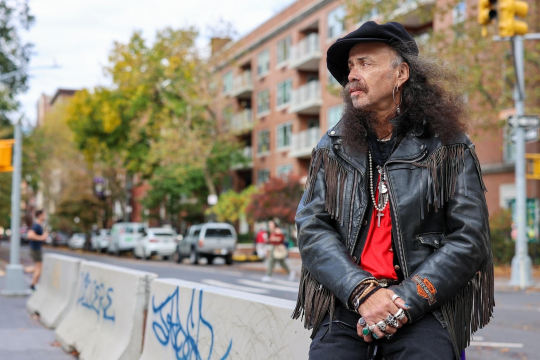
“When I was a kid I’d hide between the bedpost and the wall and read books about King Arthur. I wanted to be a knight. I wanted to be anything other than my father. We lived under his rule; it was horror. My mother was loving, and strong in many ways. But she wouldn’t leave him. I used to watch her wipe her own blood off the walls. When I was thirteen I ran away for good. I didn’t tell her a thing; I just disappeared. And I know she was hurt by that. I slept in the park with a whole crew of punks and addicts. People in the neighborhood would give me little jobs. They trusted me, and I never stole from them. Because I had honor. I’d rob a leather coat from Macy’s in a minute, but that’s Macy’s. I’d never take a woman’s pocketbook. I’d never break into a deli. No matter how far I fell, my honor never failed me. Music never failed me. And a good book never failed me. One day it was pouring down rain, and I ducked into a cubby hole. There was a copy of The Diary of Anne Frank; just laying there. I was stoned out of my face. And I knew nothing about this little girl. But it’s pouring down rain; there was nothing else to do. So I read the whole thing. She was beautiful. All this horror, but she was surviving. And that gave me strength. By the time I was twenty-five I had my own room, with a hot plate, and a pair of reeboks. I was playing music with some cool cats. I was proud. It’s like: I’m making it. When I finally got clean, the first thing I did was knock on my mother’s door. Hadn’t seen her for twenty years, but she gave me the biggest hug. She told me that every Sunday since I’d left, she’d lit a candle and prayed for my soul. That night she cooked some chicken, which I killed. Then she gave me what was left in some Tupperware. That was smart, because I had to bring back the Tupperware. And I never stopped coming back. I’m 66 now. I’m clean, I live comfortably, I’m financially OK. And I still go to see her every Sunday. She’s 94. She’s half-blind. She can’t hear. But I’ll bring her cake, and we’ll talk. She likes to take my hand, so she can feel my rings. And while we’re talking, I can tell: she’s in heaven. I was able to give her that. I gave her peace.”
9K notes
·
View notes
Text
Okay time for the PBS Kids essay
Read it under the cut!
:readmore:
In 1968, before there was PBS Kids proper, there was Mr. Roger’s Neighborhood. While it came several decades before the children’s block, it laid the foundation for the themes and values present in every facet of the network’s history.
Mr. Roger famously hated children’s programming at the time. To him, it all was droll and useless. But he didn’t dissuade the medium entirely— he saw potential. Potential that led to a few smaller television jobs, and eventually the creation of Mr. Roger’s neighborhood.
Rogers didn’t invent educational TV for children, but he did perfect it. He poured real heart and soul into probably the most sincere, heartfelt program in history.
Honestly, he could have his own essay. The more things you learn about the real man of Mr. Rogers, the more you’ll like him.
Anyway, the biggest thing that makes PBS different is the fact that it earns money through grants, fundraisers, and private donors— not through sponsorships and merchandise sales. This way, PBS Kids can push programming that it feels is important, rather than programming that merely sells well.
This also means PBS is less afraid of pushing social boundaries. Money doesn’t go away when their shows become subjects of debate— and Mr. Rogers took full advantage of this.
For context, this was 1969. The Jim Crow era had just barely, barely ended. Pool segregation was still very much legal.
youtube
Mr. Rogers sharing a pool and a towel with the Black Mr. Clemmons was a pretty big deal at the time— especially on a show made for children.
Rogers was far from the untouchable sacred cow of today. When he was alive, he had a large number of detractors. Let’s just say that scene didn’t fly nicely by everyone.
Just one year after the debut of Mr. Roger’s came Sesame Street.
While Mr. Roger’s was made for all children, Sesame Street had the explicit goal of supplementing the education of underserved communities— especially inner-city Black (and later Latino) children.
While it was made to be accessible to children of all races and income levels, they definitely went the extra mile to make it something special for inner-city Black and Brown kids. (Why do you think it it’s “Sesame Street” and not “Sesame Cul-de-Sac”?)
At the time, a wholesome, sweet show set in a brownstone street was practically unheard of.
Jon Stone, the casting director, deliberately sought to make the cast as rich with color as he possibly could, bringing on a huge amount of Black talent such as Loretta Long, Matt Robinson, and Kevin Clash, as well as featuring Black celebrities as guest stars. Later, the show would expand its horizons, bringing on actors from Latino, Asian, Native American, and many more backgrounds.
White actors were and still are a minority on show.
In addition to letters and numbers, the purpose of Sesame Street is clear: make kids of color know that they’re smart, beautiful, and loved.
youtube
It doesn’t get more explicit than this.
I want to point out this comment because it’s funny
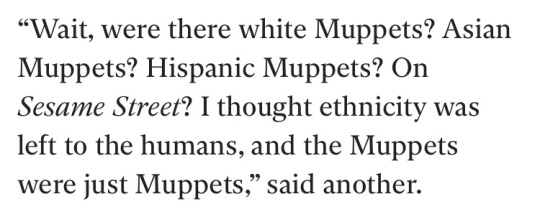
You’re telling me this bitch isn’t Hispanic???
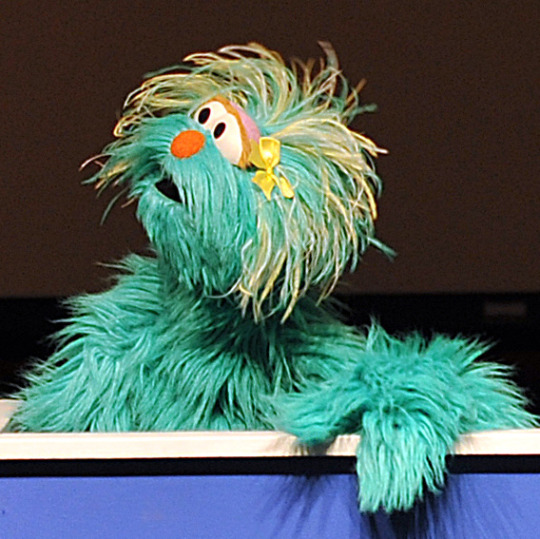
Anyway, these two were followed up by Reading Rainbow in 1983. And guess what?
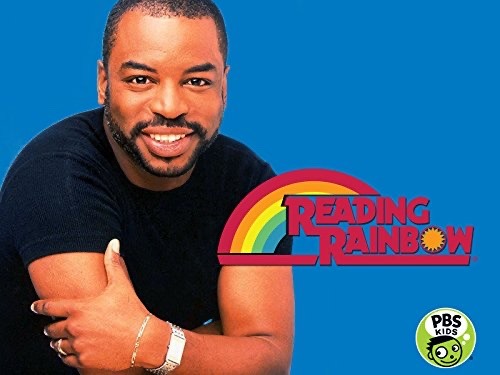
That’s right. Non-white focus.
These three shows, (along with other, lesser-known programs like Lamb-Chops Play Along, Newton’s Apple, and Shining Times Station (who featured Ringo Starr himself?? seriously how did that happen and why does no one talk about it) and some other nostalgic favorites like Bill Nye the Science guy, The Magic Schoolbus, Arthur, and Thomas the Tank Engine) aired on the new PTV block, which evolved into PBS Kids in 1999, bringing along Between the Lions, Dragon Tales, and many more.
Arthur is another stand-out that I’d like to talk about— it doesn’t have the same racial focus of Sesame Street, but it does focus on different income levels. The characters have various housing situations, from apartments to mansions to no home at all.
It also takes cues from Sesame Street and Mr. Roger’s in regards to talking about tough topics, though as Arthur has a slightly older target audience, it discusses things through stories rather than talking directly to the audience.
Cancer, religion, workplace discrimination, along with current (at the time) events such as 9/11 and Hurricane Katrina are all discussed on the show.
Another big focus on Arthur is disability. For once, they don’t stick a character in a wheelchair and then pretend he’s not in a wheelchair. A striking number of major characters either develop or get diagnosed with physical disabilities and/or neurodivergences, such as asthma, severe food allergies, and dyslexia, and they deal with them in very realistic ways.
A handful of minor characters have more obvious disabilities, and THANK GOD they go beyond the trite messaging of “disabled people can do everything abled people can do! everyone clap now!”
One episode in particular has the awesome message of “holy shit stop trying to help me all the time— it’s patronizing as fuck. I can get around just fine without you stepping on eggshells and trying to be the hero all the fucking time”
There are sooo many other shows I could talk about, but I can’t write about them all. I’m definitely gonna point out some more standout ones, though.
Sagwa, the Chinese Siamese Cat
Created by Chinese-American woman Amy Tang
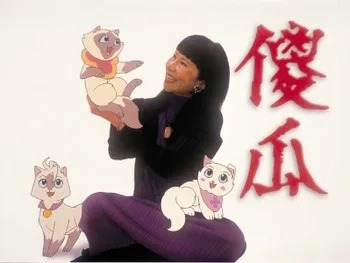
Dragonfly TV
Features a multitude of female and non-white scientists to foster an interest in science with kids in those groups
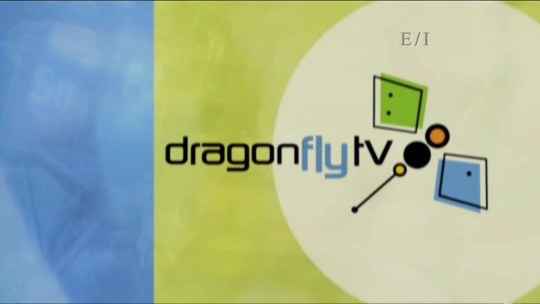
Maya & Miguel
One of the network’s first Hispanic-led shows
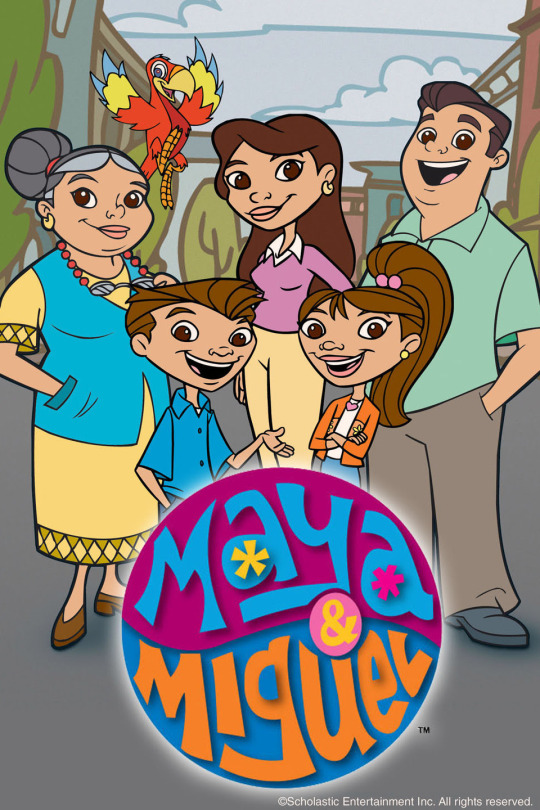
SciGirls
I shouldn’t have to explain what the goal of this one was.
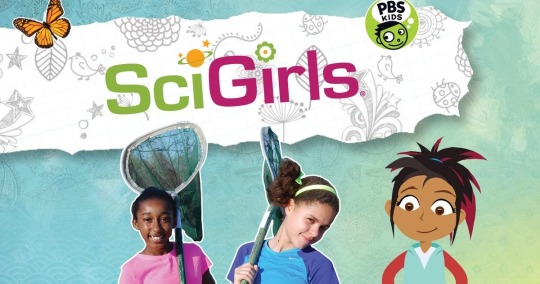
Molly of Denali
When was the last time you saw a show that treated Native Americans as people? Much less a children’s show? 90% of the cast is Athabascan, and the show revolves around Athabascan culture, not shying away from topics like boarding schools and modern-day racism. Most of the writers are also Athabascan, and the show even has an official Gwich’in dub!

It’s this commitment to real, authentic social justice that makes PBS Kids so much different from its competitors. Could you imagine the Paw Patrol dog looking at the camera and earnestly discussing what happened to George Floyd? I don’t think so— but Arthur talked specifically about it, Sesame Street did an hour long special about race in general, and the network itself made a 30 minute special.
youtube
Disney Jr. could never. (Other than trying to teach colorblindness, of course.)
I’m gonna have to cut this into two parts, since I just hit the image limit
5K notes
·
View notes